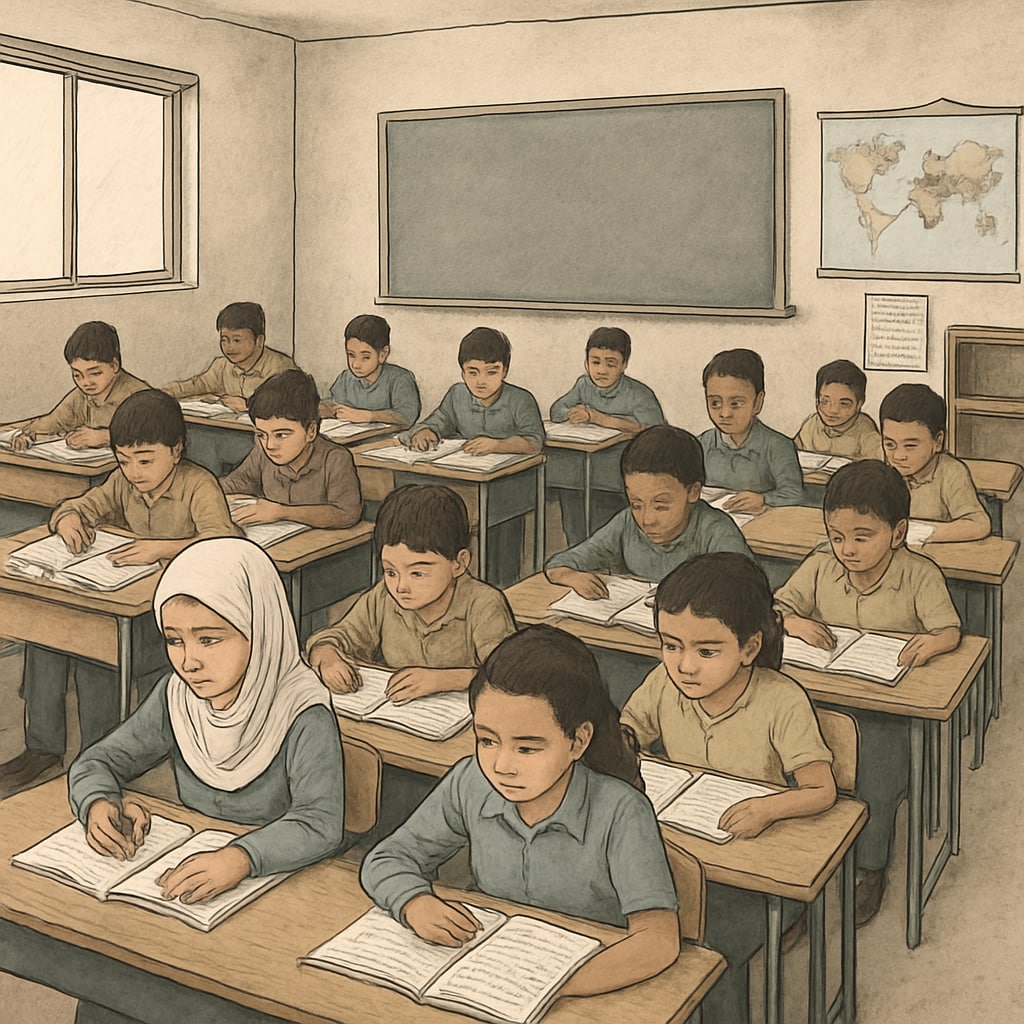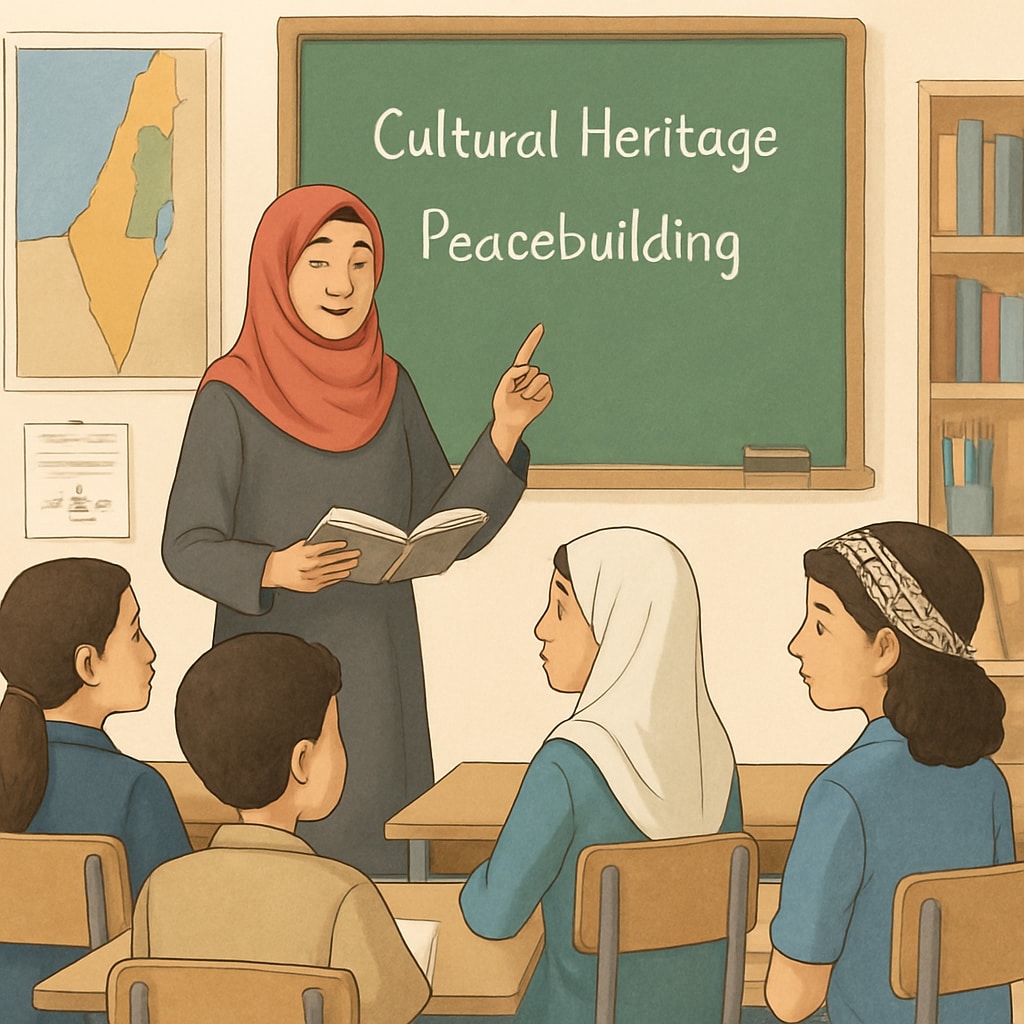The rebuilding of public education in Gaza is a monumental task, particularly in the aftermath of prolonged conflict. Developing a robust science and social studies curriculum for public schools is crucial to ensure that children in Gaza have access to stable, meaningful education. This article explores the challenges and opportunities in creating teaching frameworks tailored to the unique needs of a post-conflict environment, with a special focus on curriculum planning for the sciences and social studies.
Challenges in Rebuilding the Education System in Post-Conflict Gaza
Post-conflict regions like Gaza face significant barriers to reconstructing their education systems. Schools may have been damaged or destroyed, resources are often scarce, and the psychological toll on students and teachers alike can hinder effective learning. For instance, many classrooms lack basic supplies, while educators struggle with limited training and support. Additionally, the content of curricula must remain sensitive to the region’s history and cultural context, avoiding topics that could exacerbate tensions.
In the sciences, the challenge lies in providing hands-on learning opportunities despite limited access to laboratories and equipment. Meanwhile, social studies curricula must foster critical thinking and promote peacebuilding, all while helping students understand their unique cultural heritage and the broader world.

Key Components of a Science Curriculum in Gaza Schools
A well-designed science curriculum can inspire curiosity and equip students with problem-solving skills essential for their future. For Gaza, this requires a creative approach to overcome resource limitations. Key components of an effective science curriculum might include:
- Adaptable Lesson Plans: Lessons should be designed to use everyday materials as substitutes for laboratory equipment, ensuring that experiments remain accessible to all schools.
- Focus on Environmental Education: Given Gaza’s environmental challenges, integrating topics like water conservation, renewable energy, and waste management can have both educational and practical benefits.
- Teacher Training: Regular workshops and professional development programs can help educators stay updated on innovative teaching methods and resourceful approaches.
Incorporating these elements can make science both engaging and relevant for students, even in resource-constrained settings.
Designing a Social Studies Curriculum for Peacebuilding
Social studies play an essential role in fostering understanding and tolerance, especially in regions like Gaza that have endured conflict. A well-rounded social studies curriculum should include:
- Local and Global Perspectives: Students should learn about their own history and culture alongside lessons about global citizenship and international cooperation.
- Conflict Resolution Skills: Teaching negotiation and empathy can prepare students to become active contributors to peace in their community.
- Interactive Learning: Role-playing, group discussions, and project-based learning can make social studies more engaging and impactful.
By emphasizing peacebuilding and mutual respect, social studies can help shape a generation that values coexistence and dialogue.

Collaborative Efforts for Successful Curriculum Implementation
Rebuilding Gaza’s education system requires collaboration between local educators, international organizations, and policymakers. Some steps to ensure success include:
- Community Involvement: Parents and community leaders should be involved in curriculum planning to ensure that it aligns with local values and needs.
- Partnerships with NGOs: Non-governmental organizations can provide resources, training, and funding to support curriculum development.
- Monitoring and Evaluation: Regular assessments can help identify areas for improvement and ensure that the curriculum remains effective over time.
By fostering a sense of ownership and collaboration, these efforts can create a sustainable foundation for education in Gaza.
In conclusion, designing science and social studies curricula for Gaza schools presents both challenges and opportunities. By focusing on adaptability, cultural sensitivity, and peacebuilding, educators can provide students with the tools they need to thrive despite adversity. Rebuilding education in Gaza is not just about classrooms and textbooks; it is about nurturing hope and resilience for a brighter future.
Readability guidance: The article uses short paragraphs and lists to enhance readability. Active voice is prioritized, and transitions such as “for example,” “in addition,” and “as a result” ensure a logical flow. Passive voice and long sentences are minimized, adhering to readability best practices.


